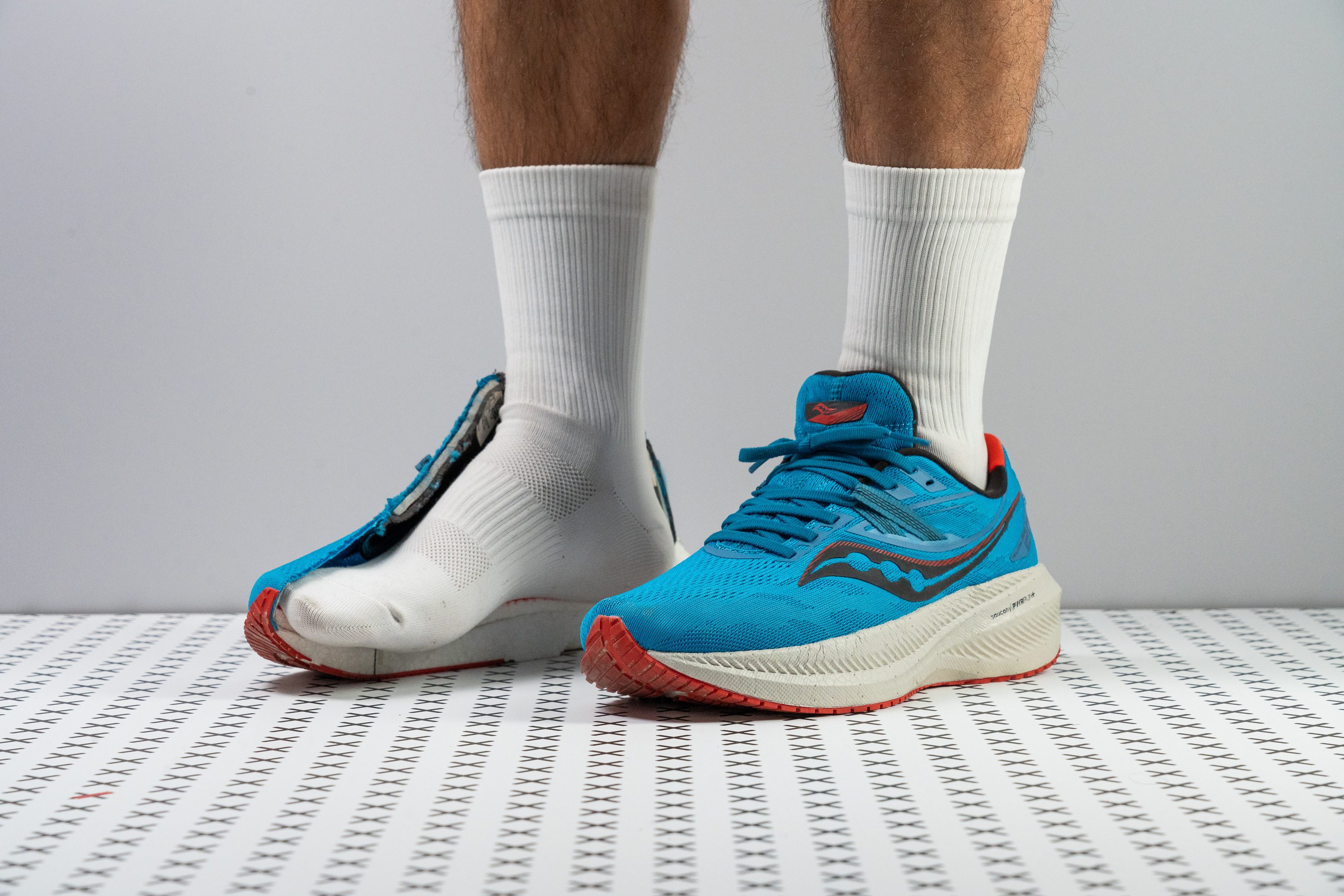Our verdict
Pros
- It's now livelier
- Comfy as expected
- Fits like a glove!
- Heel clutch couldn't be better
- No lace bites
- ...and they stay in place
- Lighter than before
- Plush yet breezy upper
Cons
- Price is way up there
- Rocker geometry isn't as pronounced
Audience verdict
Comparison
The most similar running shoes compared
+ + Add a shoe | |||||
|---|---|---|---|---|---|
| Audience score | 87 Great! | 84 Good! | 87 Great! | 88 Great! | |
| Price | $160 | $80 | $170 | $179 | |
| Pace | Daily running | Daily running | Daily running | Daily running | |
| Shock absorption | - | Moderate | High | - | |
| Energy return | - | Moderate | High | - | |
| Traction | - | High | High | - | |
| Arch support | Neutral | Neutral | Neutral | Neutral | |
| Weight lab Weight brand | 9.9 oz / 282g 9.7 oz / 275g | 9.2 oz / 261g 9.5 oz / 268g | 9.6 oz / 272g 9.3 oz / 263g | 9.4 oz / 266g 7.6 oz / 215g | |
| Drop lab Drop brand | 10.4 mm 10.0 mm | 7.8 mm | 10.0 mm 10.0 mm | 9.4 mm 10.0 mm | |
| Strike pattern | Heel | Mid/forefoot | HeelMid/forefoot | HeelMid/forefoot | |
| Size | Slightly small | Slightly small | True to size | - | |
| Midsole softness | Soft | Soft | Balanced | Soft | |
| Difference in midsole softness in cold | Normal | Normal | Small | Big | |
| Toebox durability | - | Good | Decent | - | |
| Heel padding durability | - | Good | Good | - | |
| Outsole durability | - | Good | Good | - | |
| Breathability | Breathable | Breathable | Moderate | Breathable | |
| Width / fit | Narrow | Medium | Medium | Narrow | |
| Toebox width | - | Medium | Medium | - | |
| Stiffness | Stiff | Flexible | Stiff | Stiff | |
| Torsional rigidity | Flexible | Flexible | Moderate | Moderate | |
| Heel counter stiffness | Moderate | Moderate | Stiff | Flexible | |
| Rocker | ✓ | ✗ | ✗ | ✗ | |
| Heel lab Heel brand | 35.4 mm 37.0 mm | 35.4 mm | 42.3 mm 37.0 mm | 35.2 mm 35.0 mm | |
| Forefoot lab Forefoot brand | 25.0 mm 27.0 mm | 27.6 mm | 32.3 mm 27.0 mm | 25.8 mm 25.0 mm | |
| Widths available | NormalWide | NormalWideX-Wide | NormalWide | Normal | |
| Orthotic friendly | ✓ | ✓ | ✓ | ✓ | |
| Season | SummerAll seasons | SummerAll seasons | All seasons | SummerAll seasons | |
| Removable insole | ✓ | ✓ | ✓ | ✓ | |
| Ranking | #308 Top 46% | #246 Bottom 35% | #146 Top 39% | #124 Top 33% | |
| Popularity | #330 Top 49% | #28 Top 8% | #73 Top 20% | #350 Bottom 8% |
Size and fit
Size
Saucony Triumph 20 fits slightly small (74 votes).
Who should buy the Saucony Triumph 20
The twentieth version of the Saucony Triumph is a must-have for those who want a:
- long-distance running shoe for easy days
- fun and lively ride on the road
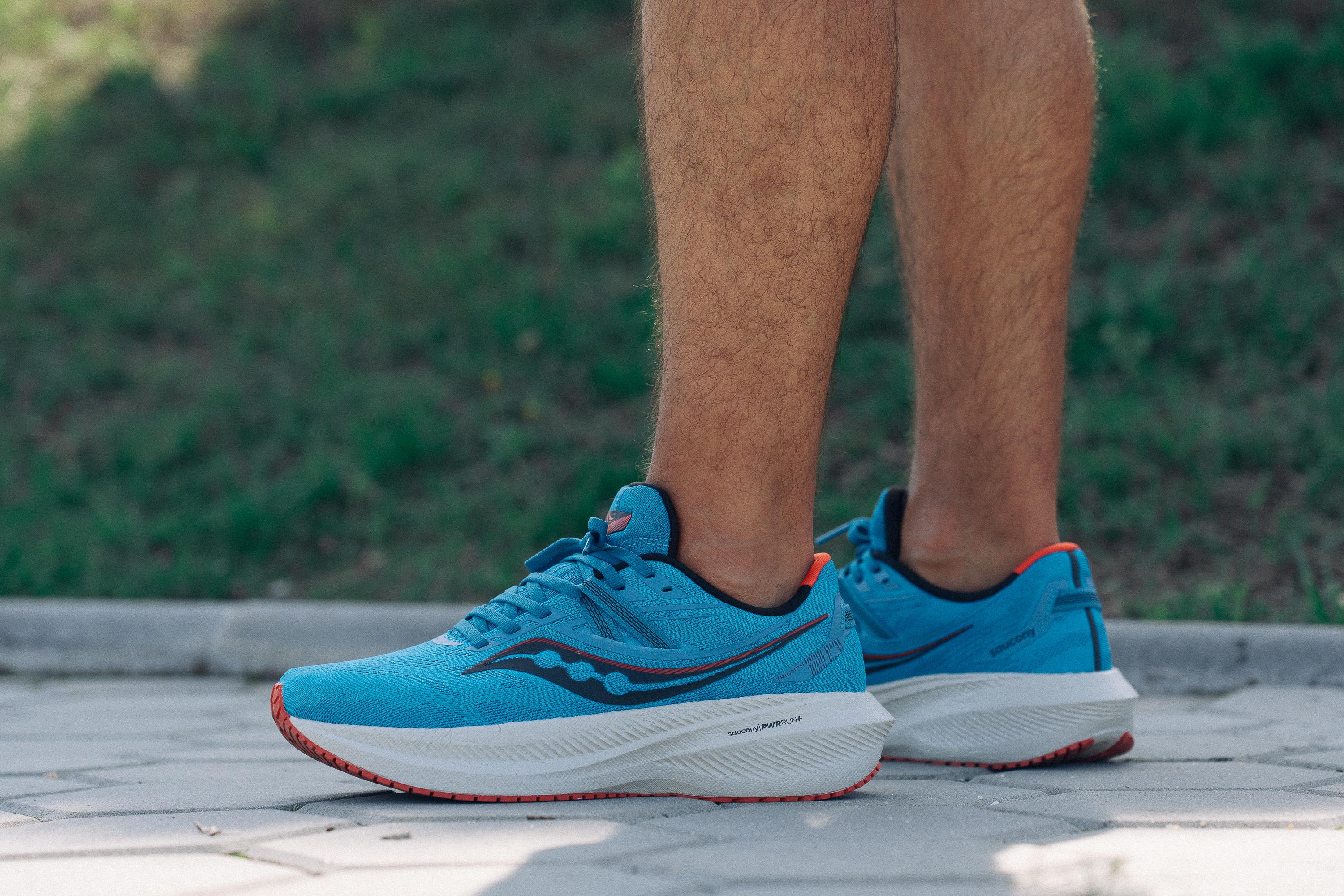
Who should NOT buy it
If you're looking for a cheaper alternative that's just as comfortable, add the Saucony Axon 3 to your cart instead of the Triumph 20. And if you want to really feel that rockered ride moving you to your next step, we know for sure that the Saucony Ride15 will fit you to a T!
Triumph 20 vs. 19
The general design idea behind the Saucony Triumph 20 is to create a more cushioned yet lighter version of the Triumph 19.
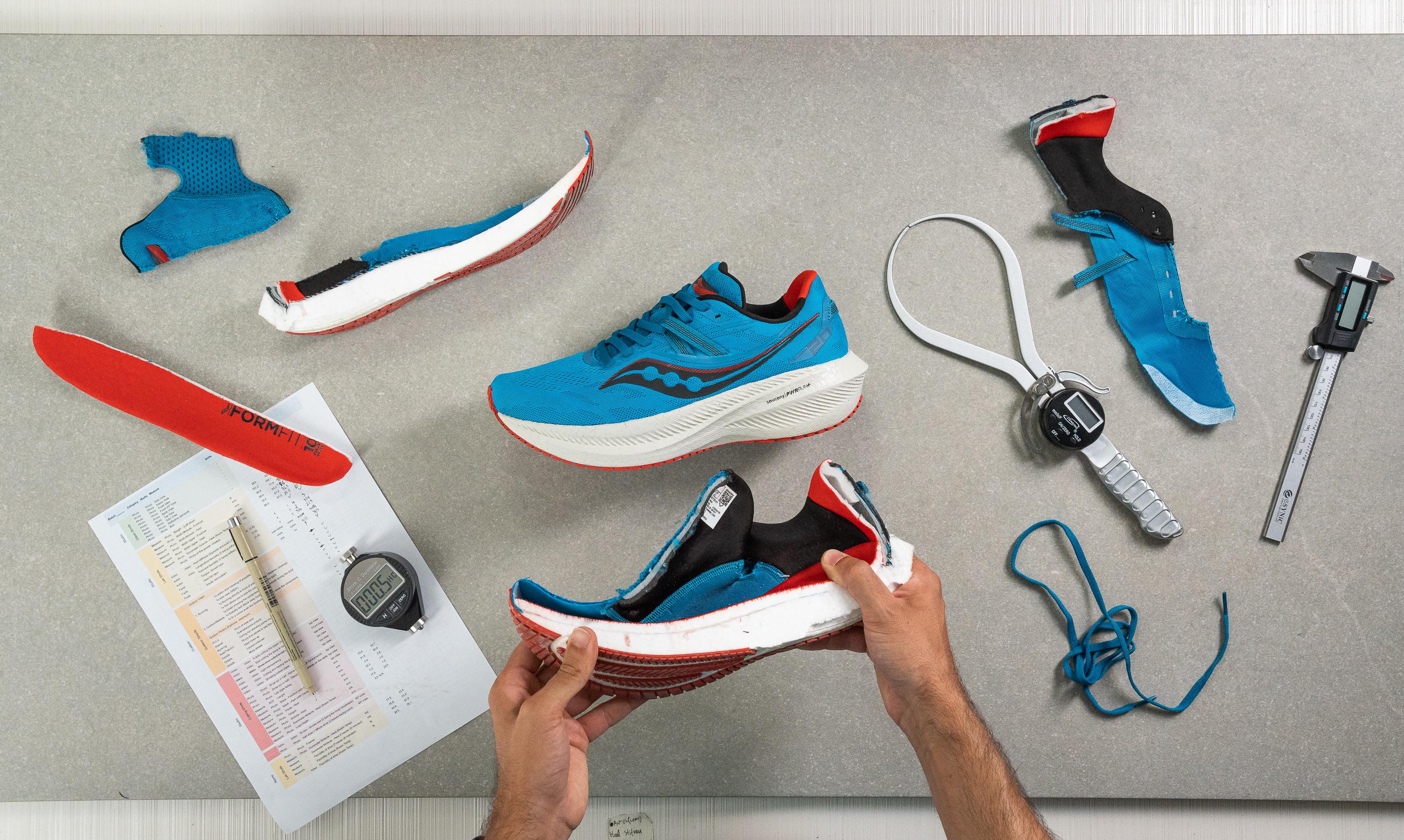
And to attain this, Saucony made the following changes:
- More cushion
Departing from an 8 mm drop, the Saucony Triumph 20 now has a 10 mm drop. This update implies better comfort and responsiveness for that fun, forgiving ride.

There is also a copious amount of heel cushioning in the Triumph. Given that it is the brand's max-cushioned shoe series, it is no surprise. With 35.4 mm of heel stack, it is a little thicker than the average across running shoes.
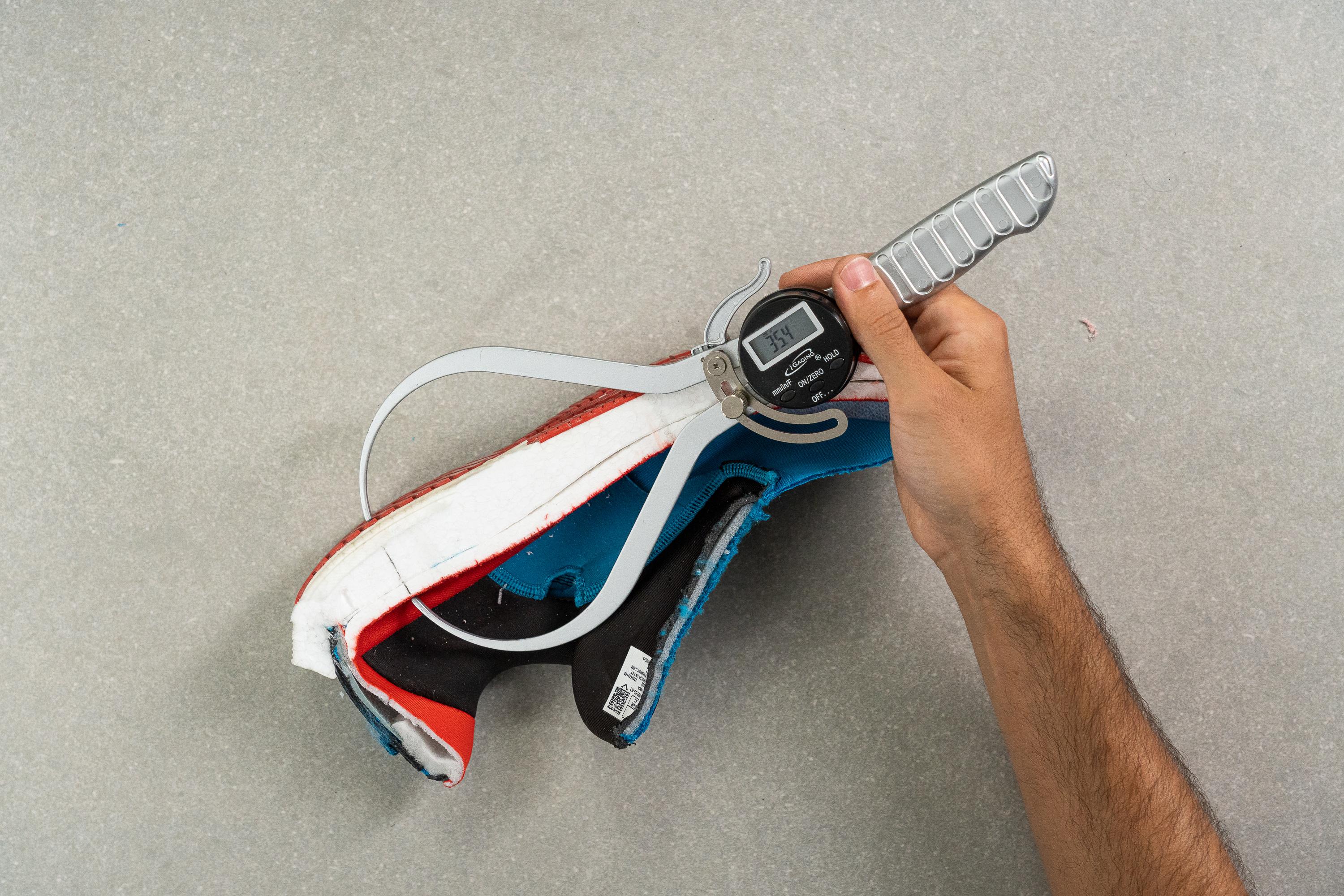
- Less weight
Although more cushioned, the Triumph 20 goes on a diet. It trims down weight to 9.7 oz from 10.2 oz in men's US 9.
- Better lockdown
To keep the laces tied and locked in position, the eyelets are reinforced.
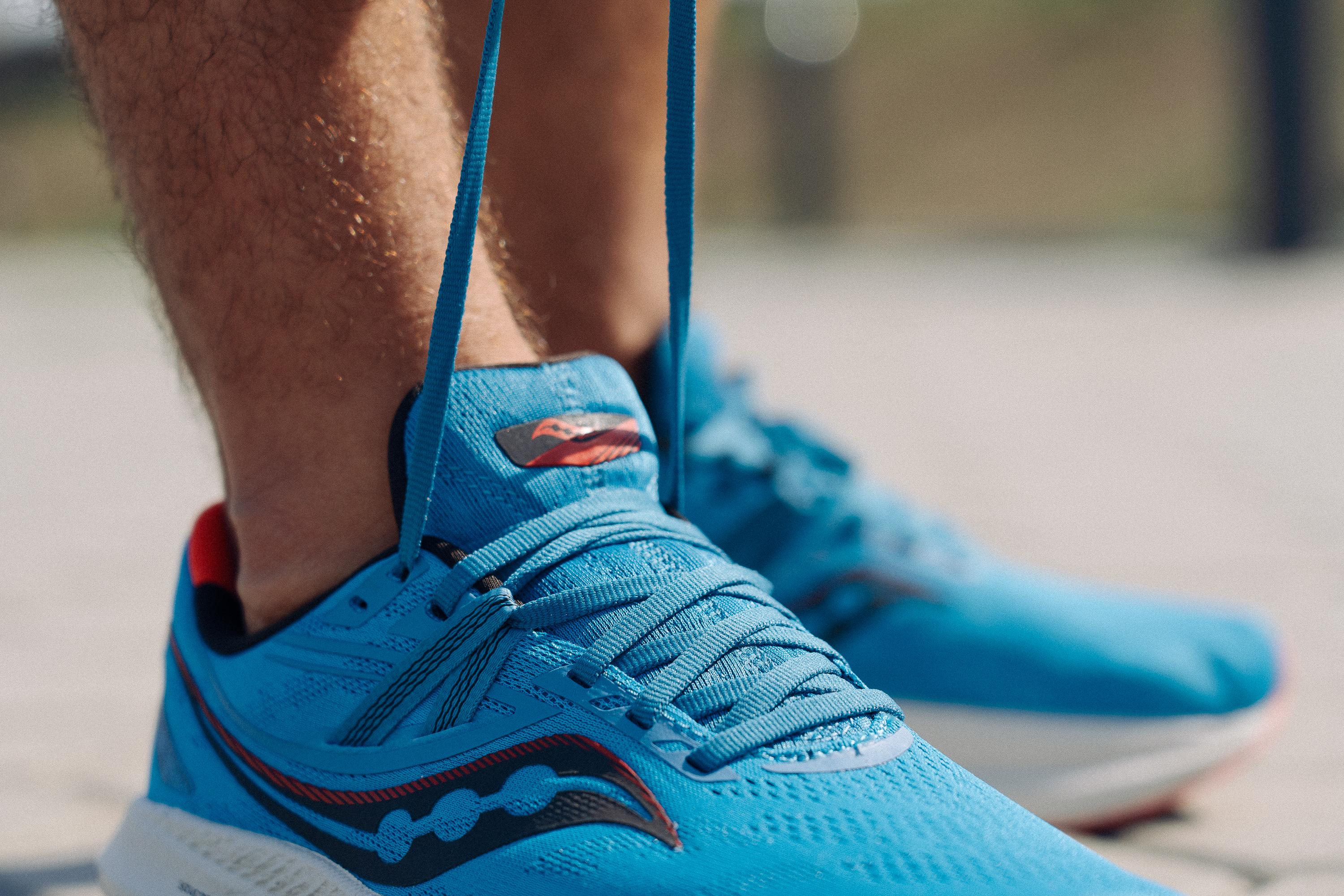
It ain't boring
The Triumph 20 performed amazingly in our test runs! Peppy and cushy, the shoe generated a nice bounce-back in each step. It made this Saucony shoe very enjoyable to use for longer miles.
The shoe quickly made its way into our top running shoe lists in the "best cushioning" category.
Comfortable on all fronts
From top to bottom, the Saucony Triumph is uber comfy. The upper is well-padded, it lodges the foot without the fear of blisters.
Lace bites are also out of the question with the shoe's extra padded tongue. At 7.9 mm, it is significantly thicker than the average 5.8 mm.
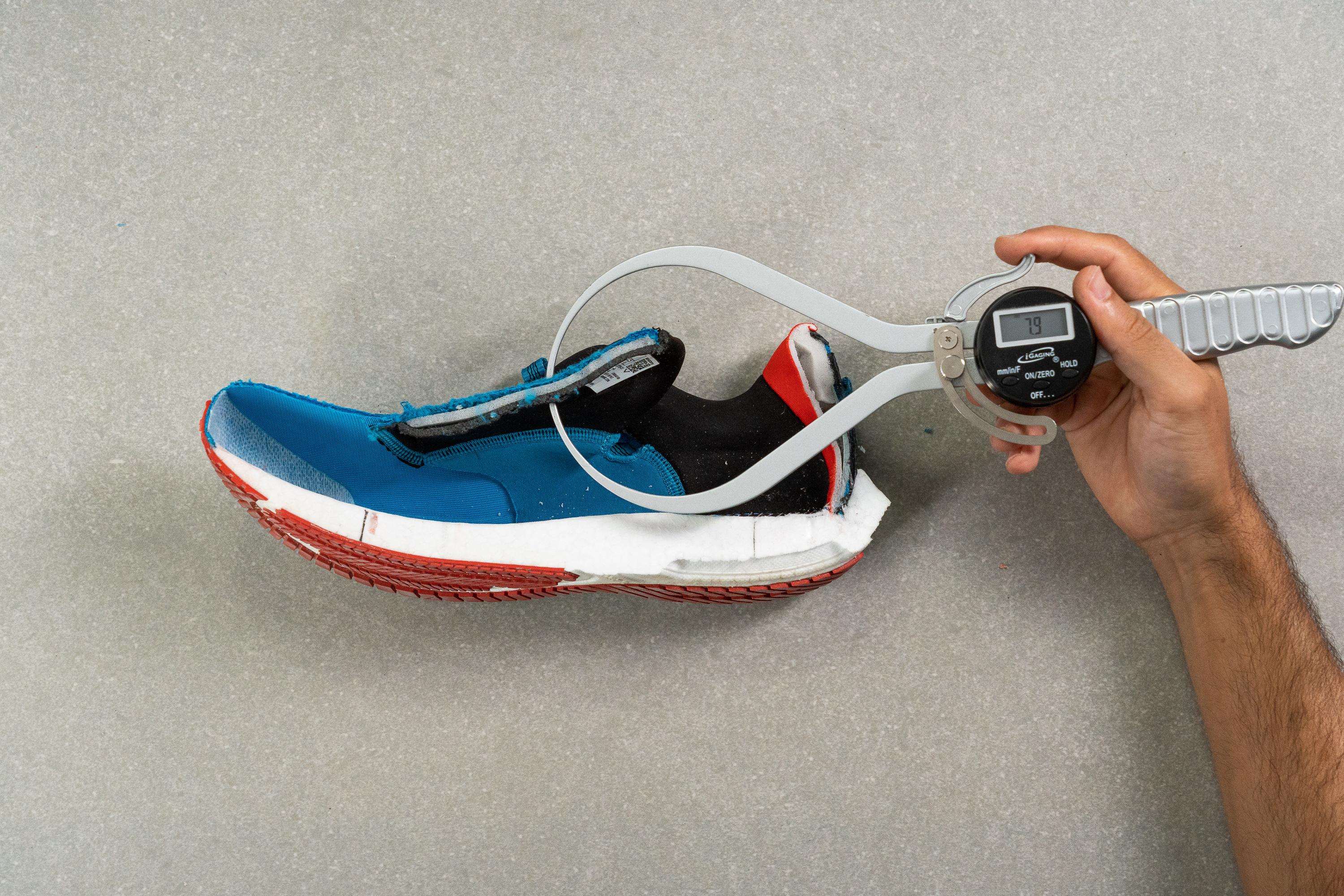
We also checked the shoe's foam softness with a durometer and it looks like the Triumph lives up to its reputation as one of the plushest shoes from Saucony. At 21.0 HA, it is 30% softer than the average!
Disclaimer: The image below shows 1 out of 5 measurements that we took with the durometer.
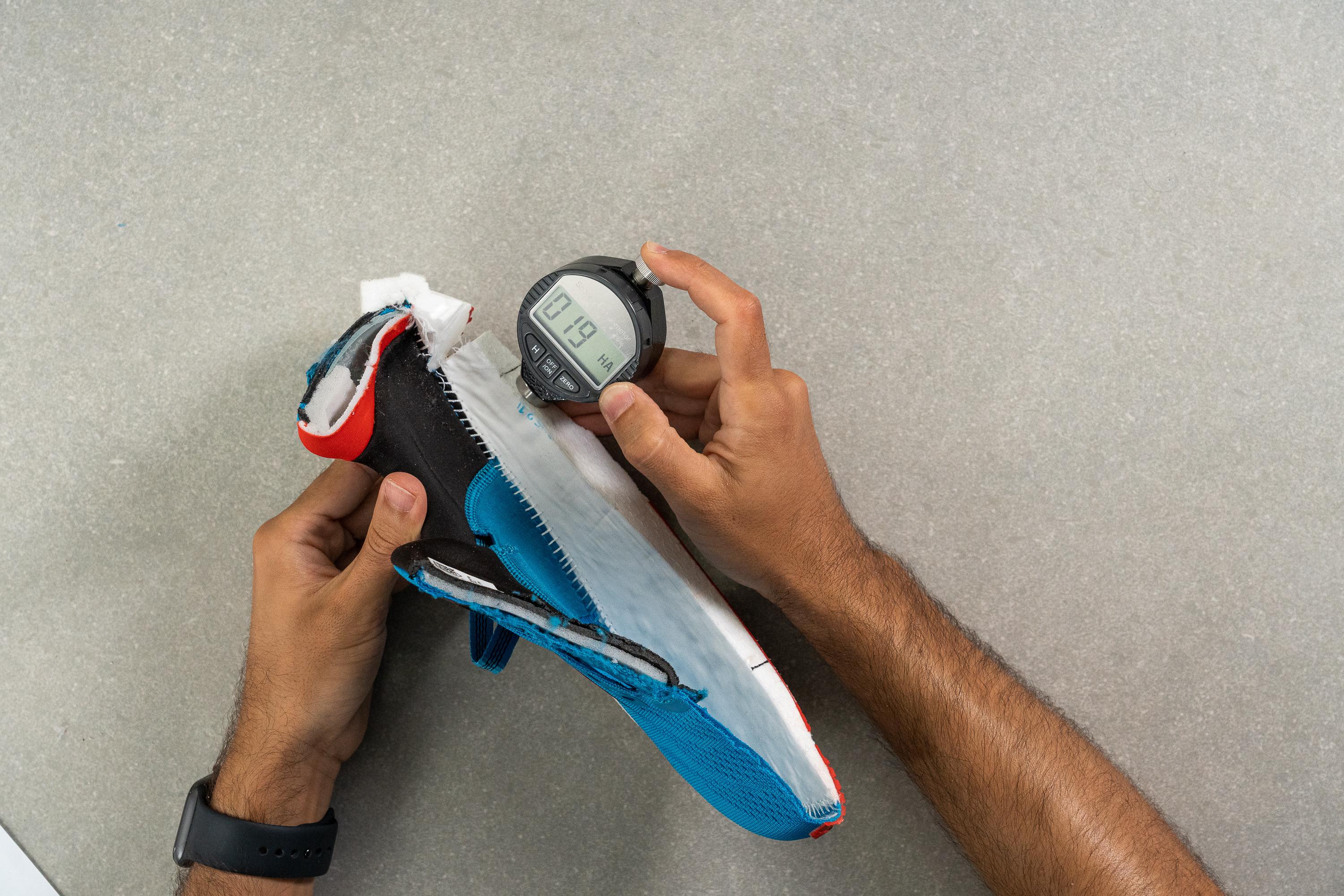
Even when exposed to cold temperatures and getting 26.9% firmer, the foam on the Triumph 20 remains relatively soft. The Triumph's "frozen" foam is 16.5% softer than the average of running shoe foam at a regular room temperature.
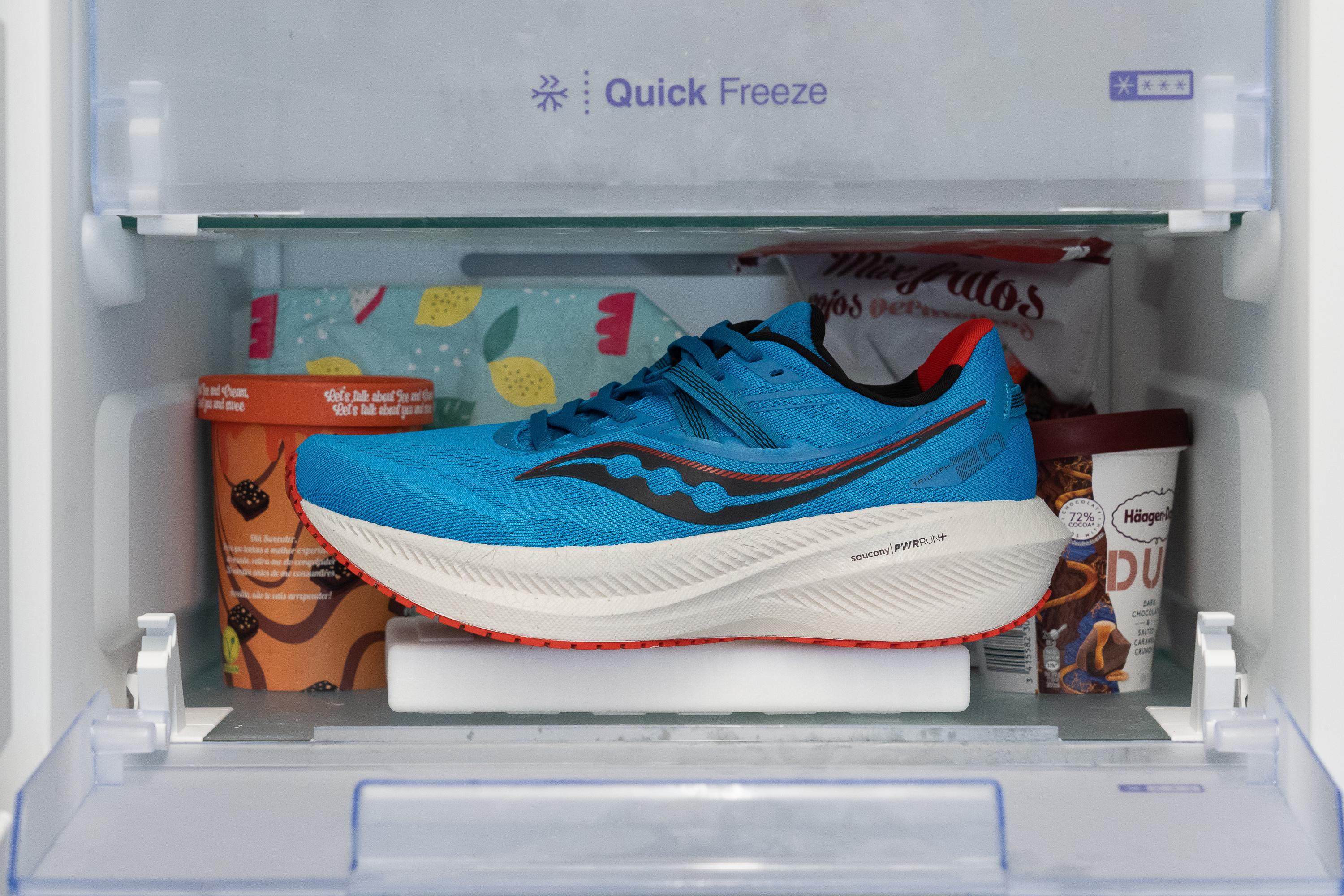
The foam eats up all the impact
On top of the midsole being super comfy, it also dampens all impact. It protected our legs on a trial 10K run and felt especially supportive towards our final miles.
It's not a warmer
Despite the upper being very padded and plush, it never made us feel too hot. Even when running long distances under warm conditions, the shoe never heats the foot up.
We used a smoke machine test to see how easily the air would pass through the shoe's mesh upper. It is indeed on the breathable side. For reference, the shoe on the right is ASICS Gel Kayano 29.
You can also see how much light shines through the upper fabric in the test below:
For breathability, the Triumph 20 gets a well-deserved 5 out of 5!
The seemingly non-existent rocker design
It doesn't necessarily make the ride seamless. It's there, but its benefits didn't feel very pronounced to us.
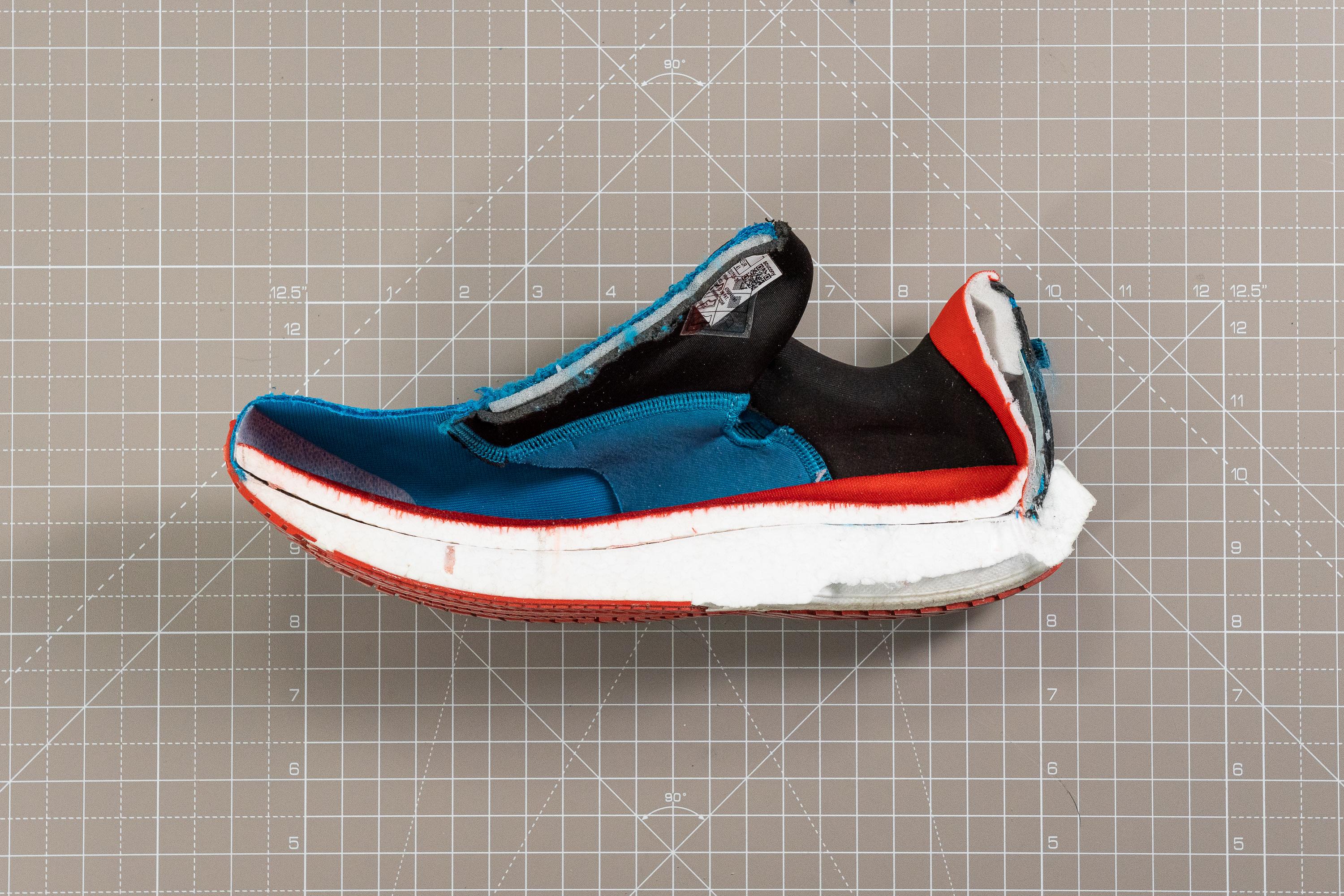
Surprisingly flexible with all that foam!
The Triumph 20 is full of surprises. With an above-average stack height, it still manages to be 10% more flexible than running shoes on average.
The shoe is also pretty bendy when twisted sideways. On a 1-5 scale, where 5 is the stiffest, we rated its torsional flexibility as 2.
The Triumph 20's fit is nothing short of awesome
If you forget about all the shoes right after putting them on, that's a sign of a perfect fit. And that's exactly what we have experienced with the Triumph 20.
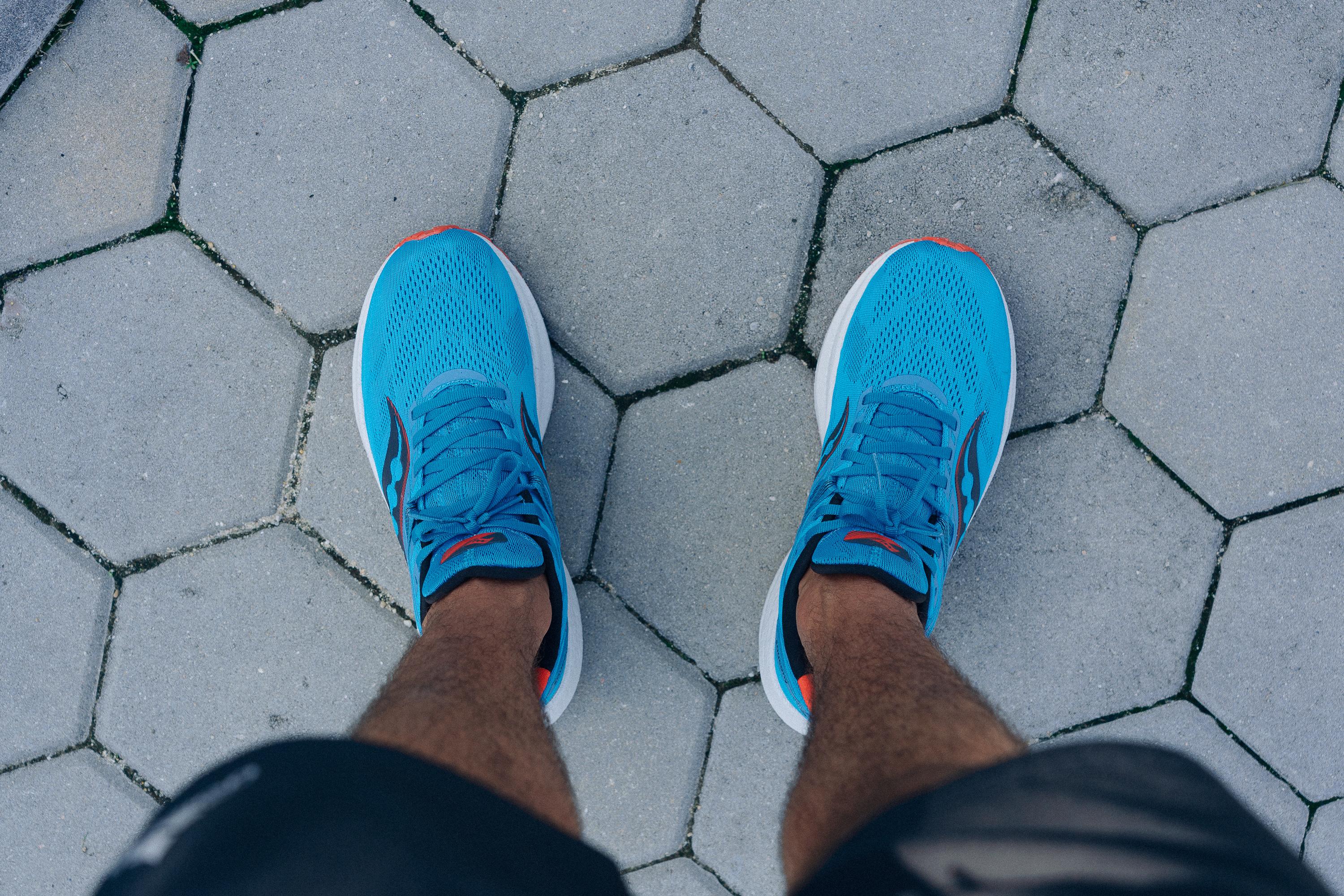
The midfoot and the rearfoot fit really snugly, and in the toe box, there's enough room for some toe wiggling, especially when they start to swell.
Based on our measurements, the forefoot doesn't seem to be the widest out there. At 95.6 mm, it is slightly narrower than the average (98.3 mm).
It's just fine for a medium-width foot, but if you'd like to see a wider Saucony shoe, try the shoe's successor, the Triumph 21 (much wider at 102 mm in the forefoot).
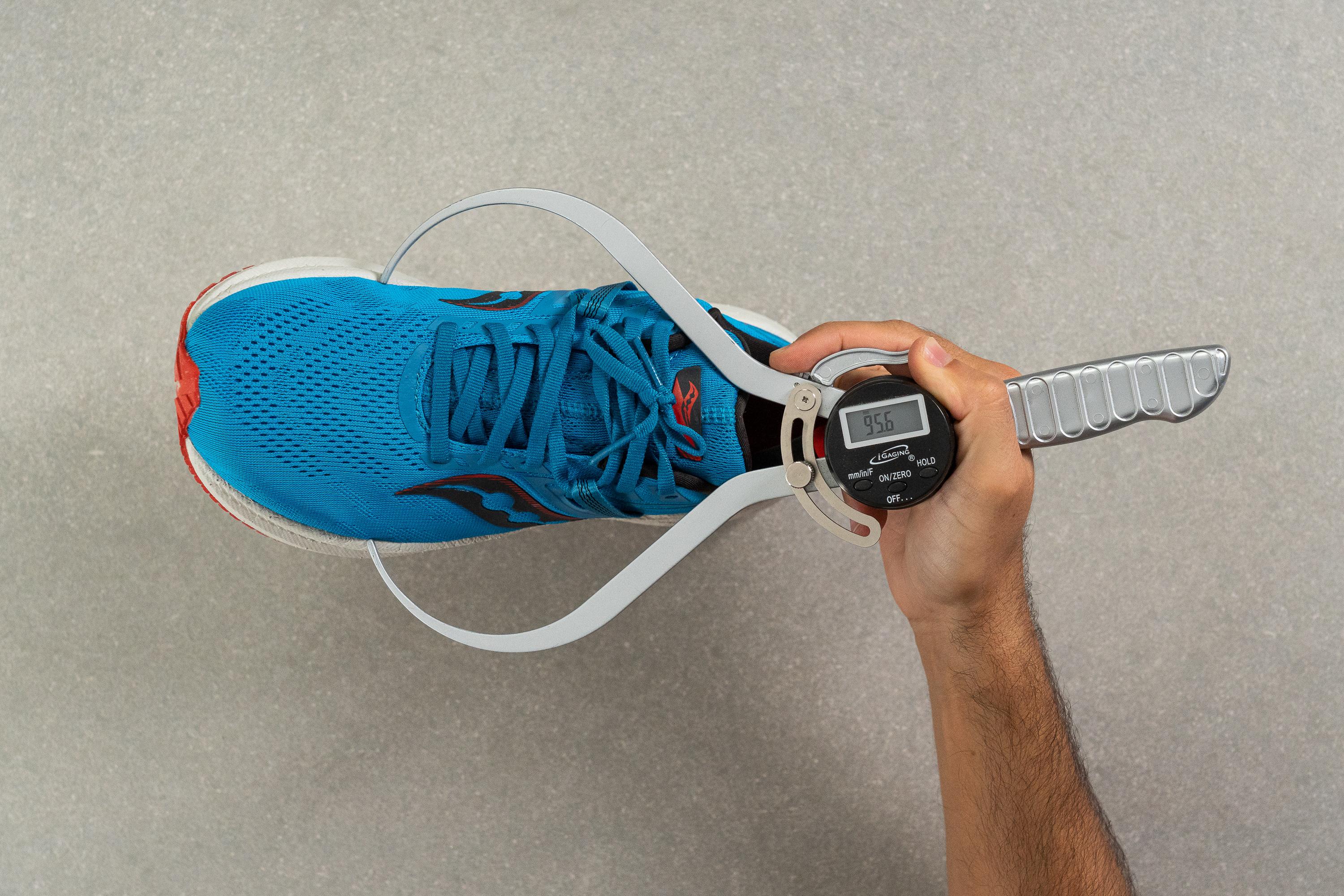
The gusseted tongue deserves special attention. It plays its part in keeping the foot nice and locked in place.
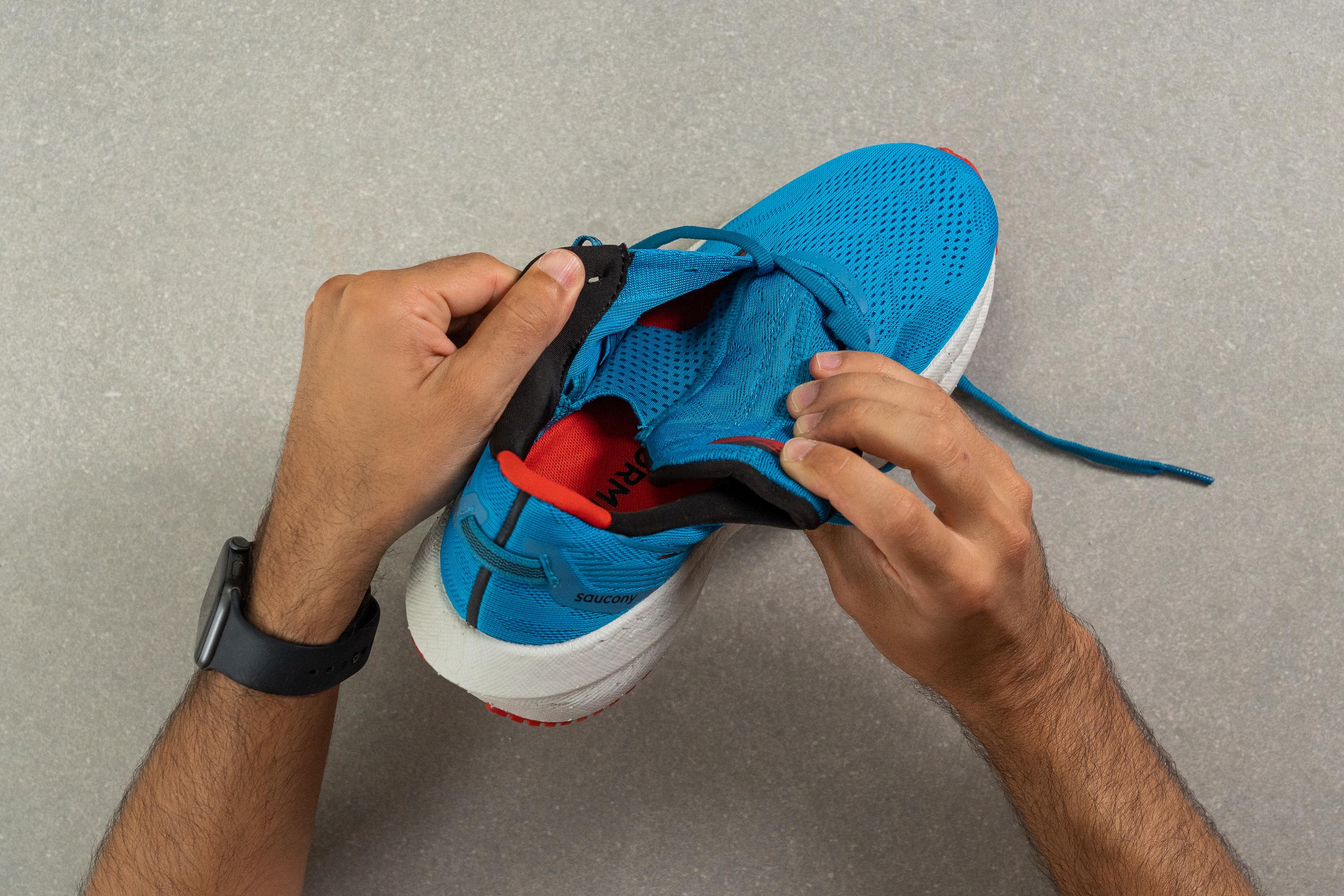
Heel lockdown is just as terrific
The shoe's reinforced heel counter provides extra stability which never made us worried over heel slips.
In our subjective assessment of the heel counter stiffness, we gave it a 3/5 (where 5 is the stiffest). So, it's nowhere near the "ASICS clutch" on the Kayanos but feels solid for sure.
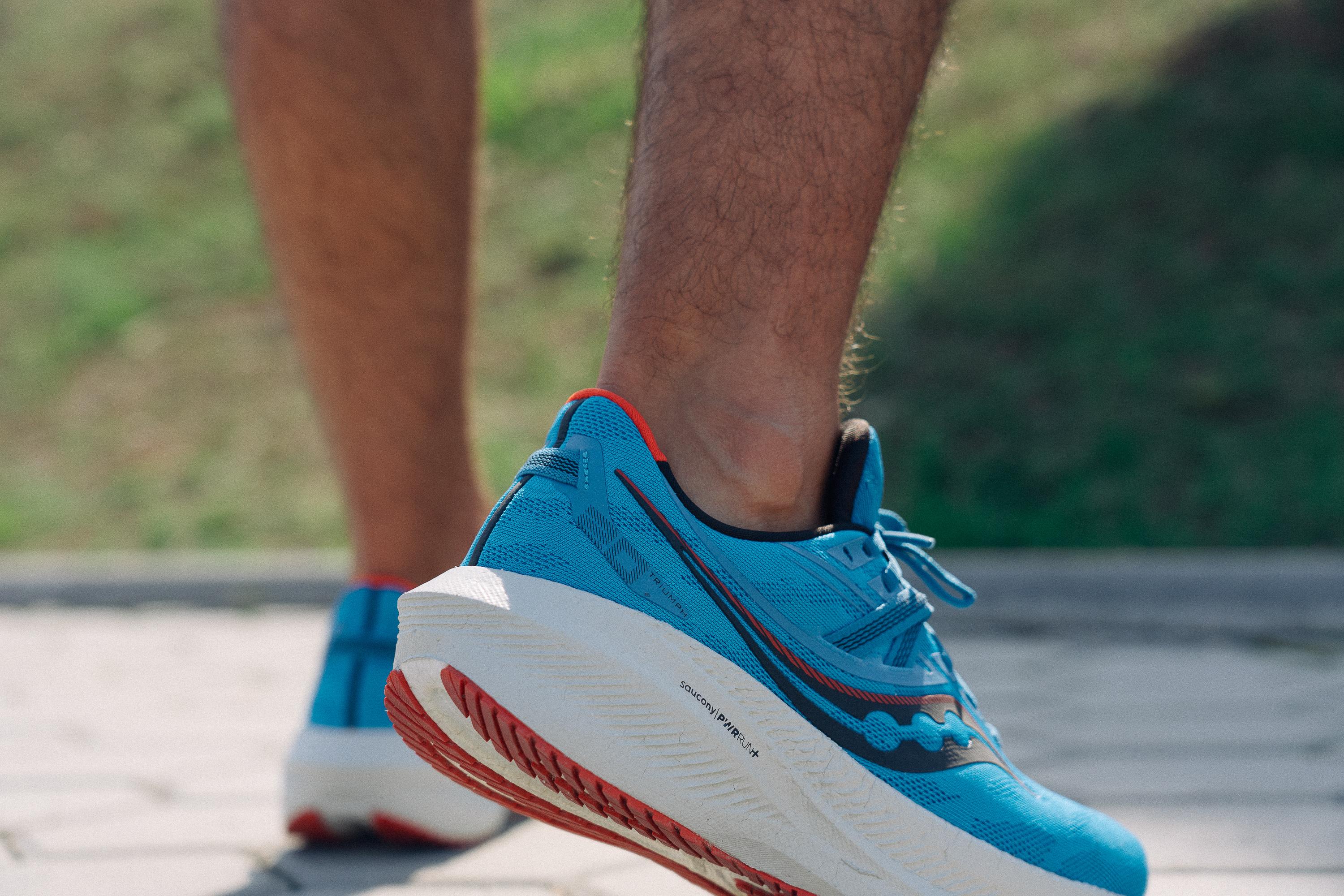
The laces stay where they are
Saucony really thought their updates through. With the reinforced lacing eyelets, the laces stay where they should. What's more, the shoe doesn't cause any blisters.
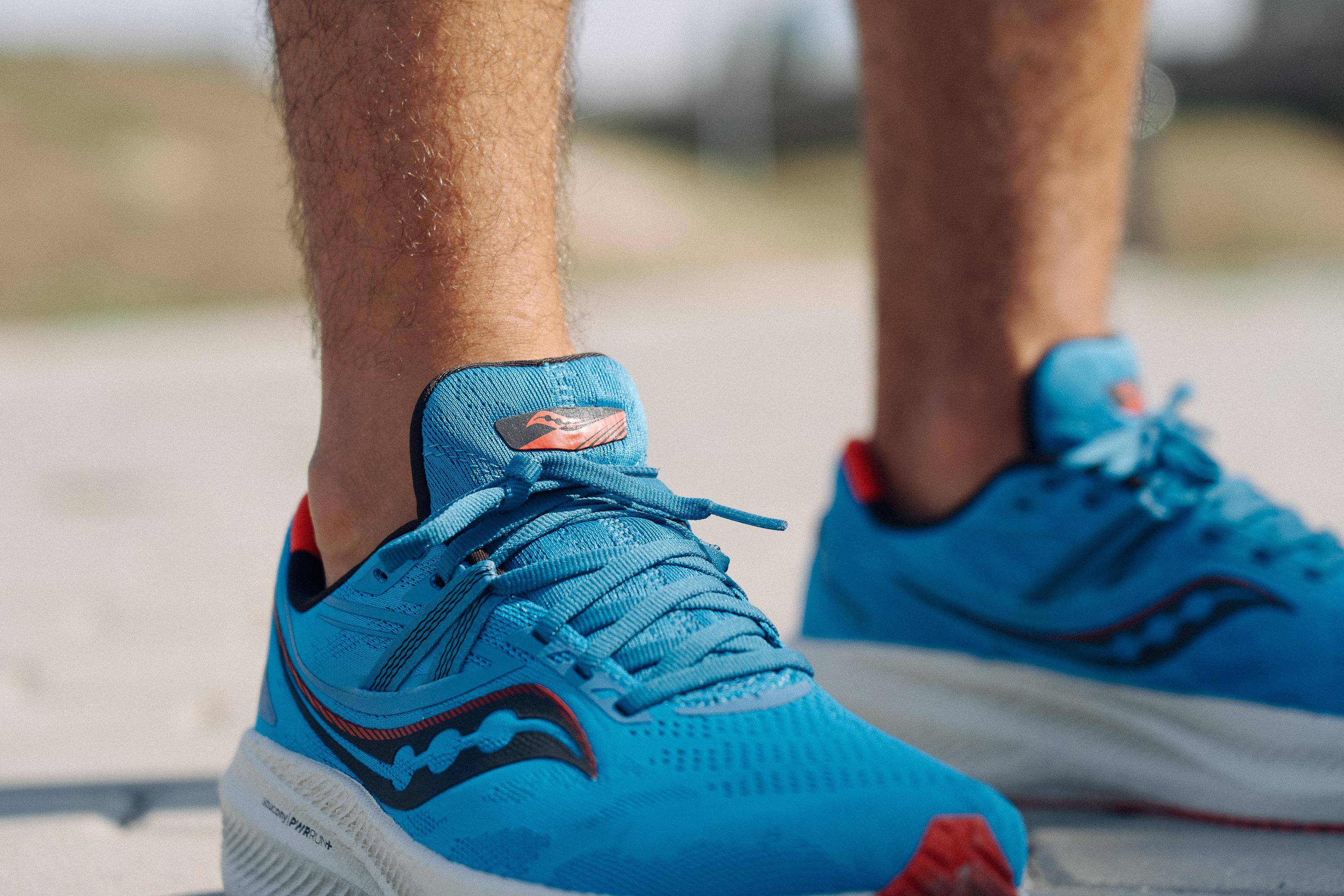
Lost some grams
Weight loss in shoes is always great. The Triumph's trimmed-down weight is actually one of the top reasons why this Saucony shoe keeps making it to our best cushioned daily trainers.
Coming down from 10.6 oz (300g) to 10 oz (283g) in a men's US 9, the difference is not just seen on paper, but is also felt on the run. We especially appreciated the shaved grams on longer runs.
Solid rubber outsole
Despite not having a full-length outsole, the shoe is still effectively protected with thick pieces of rubber in the strategic areas. Having measured the rubber thickness though, we can tell that it is a solid slab of 3.5 mm. This is right at the average of running shoes.

And don't worry, it doesn't skimp on grip either. This shoe can even grip some light trails!
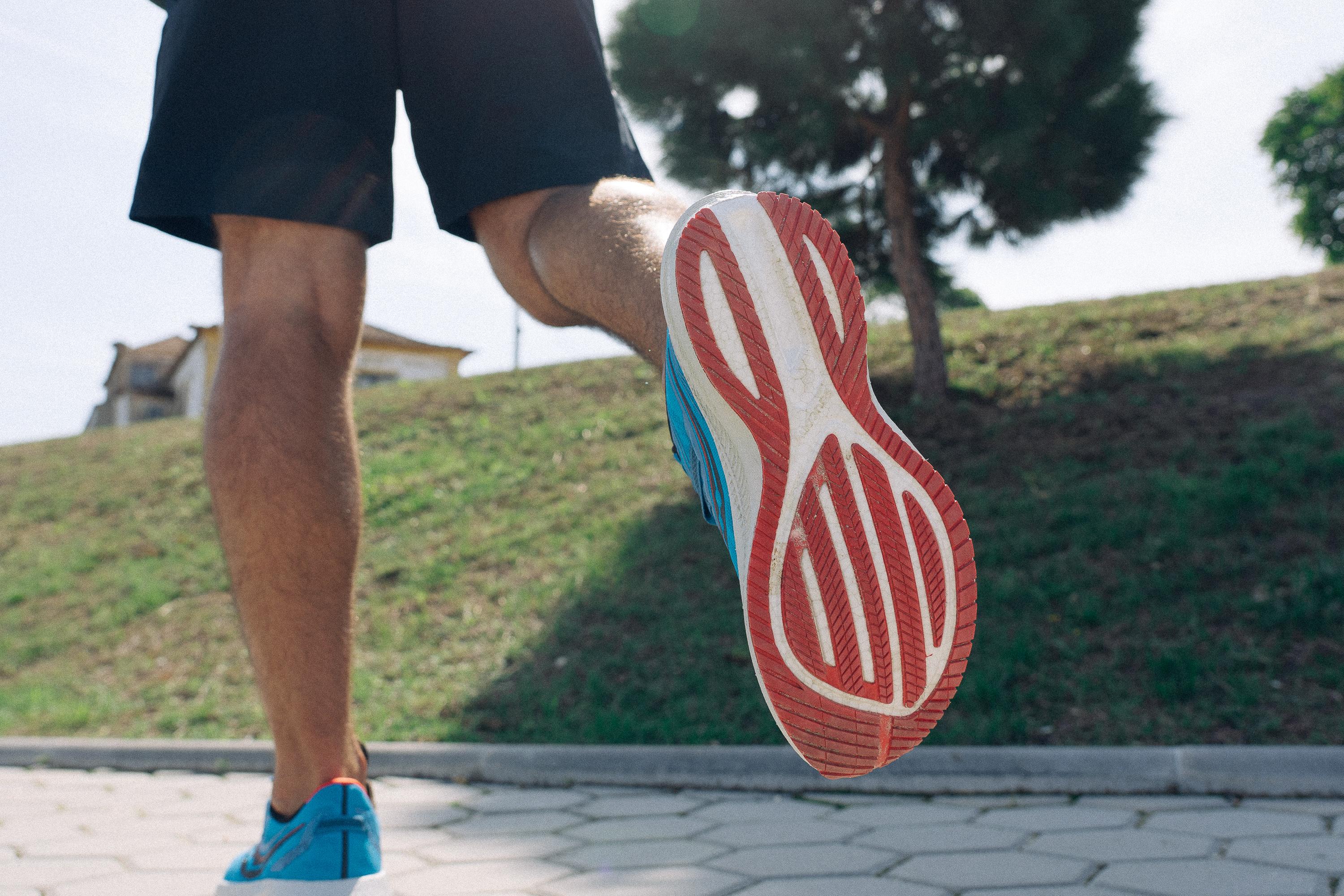
A price cut, please.
Contrary to its precursor, the Saucony Triumph 19, the Saucony Triumph 20 is expensive by $10.
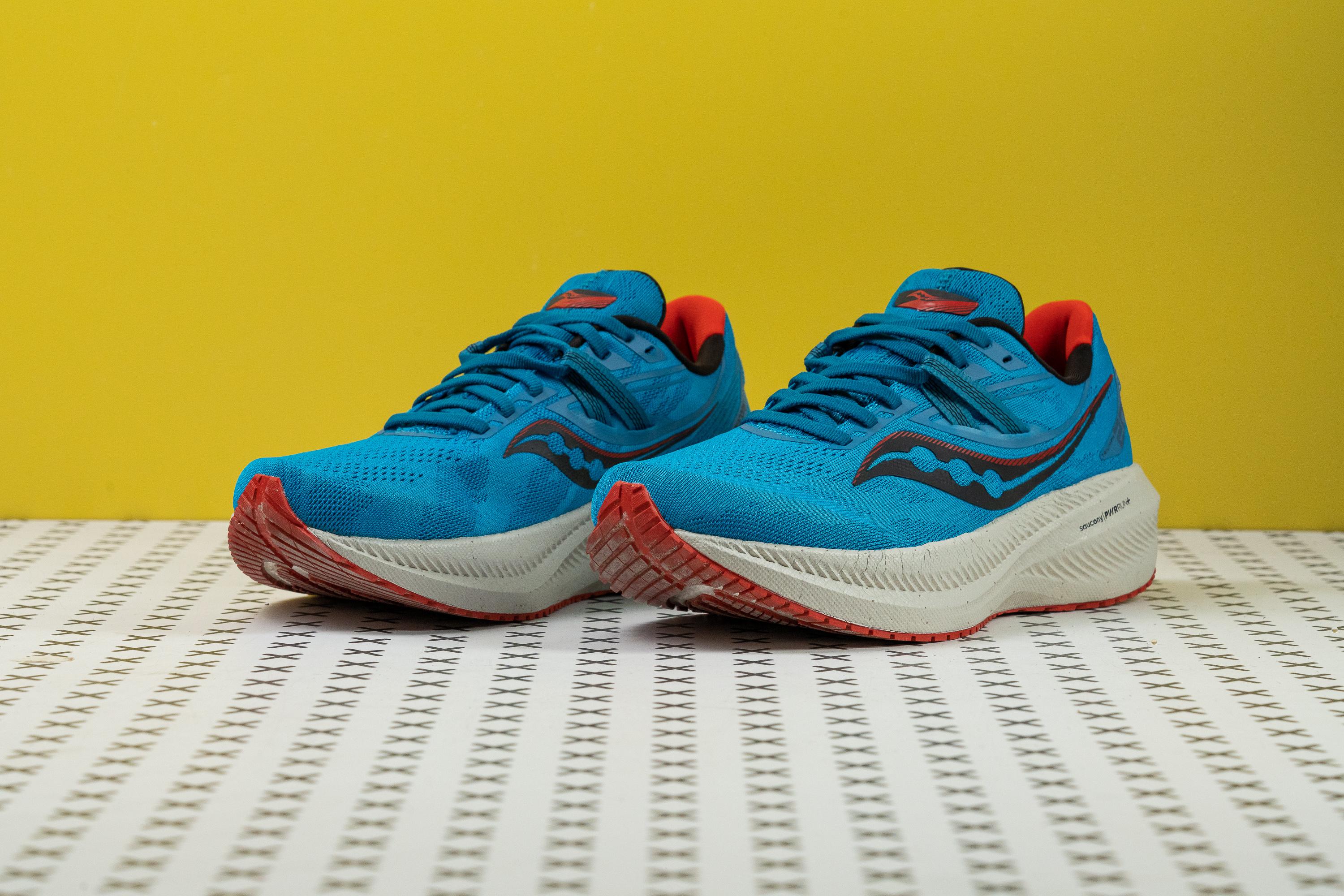
What's worse is that it's way pricier than most daily trainers (which cost $119 per pair, on average).


